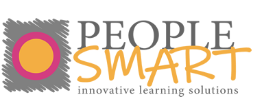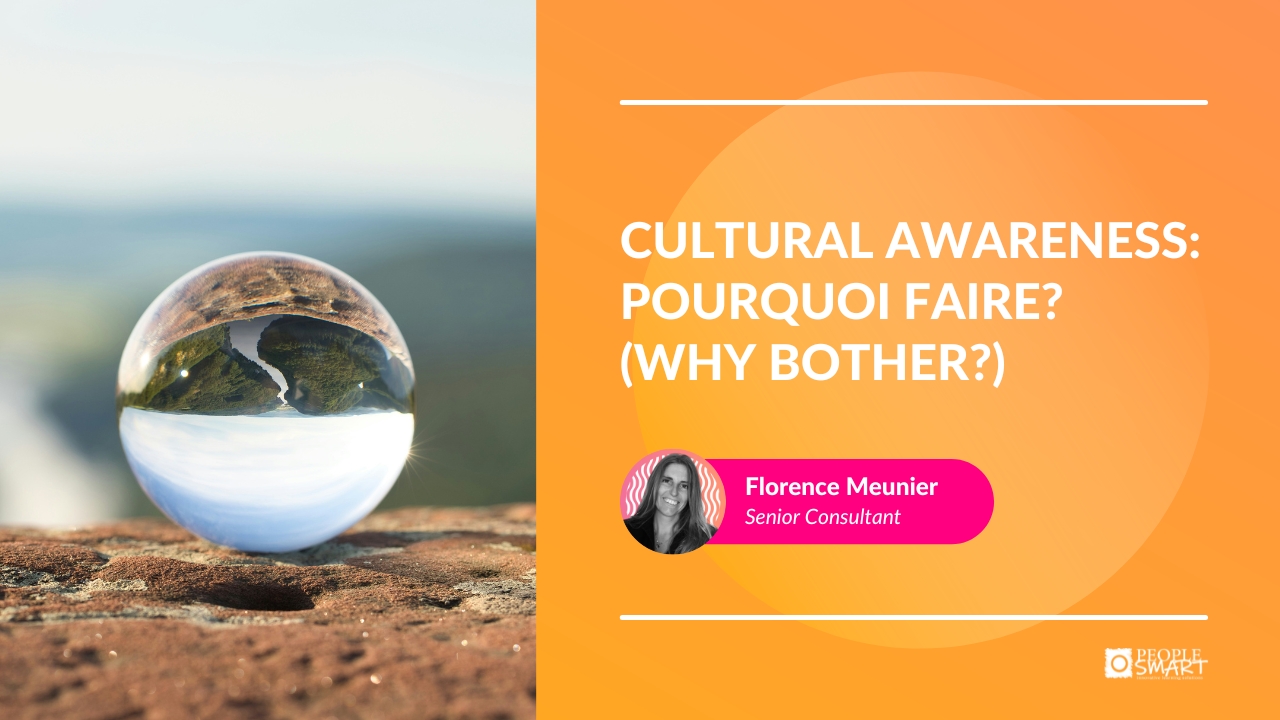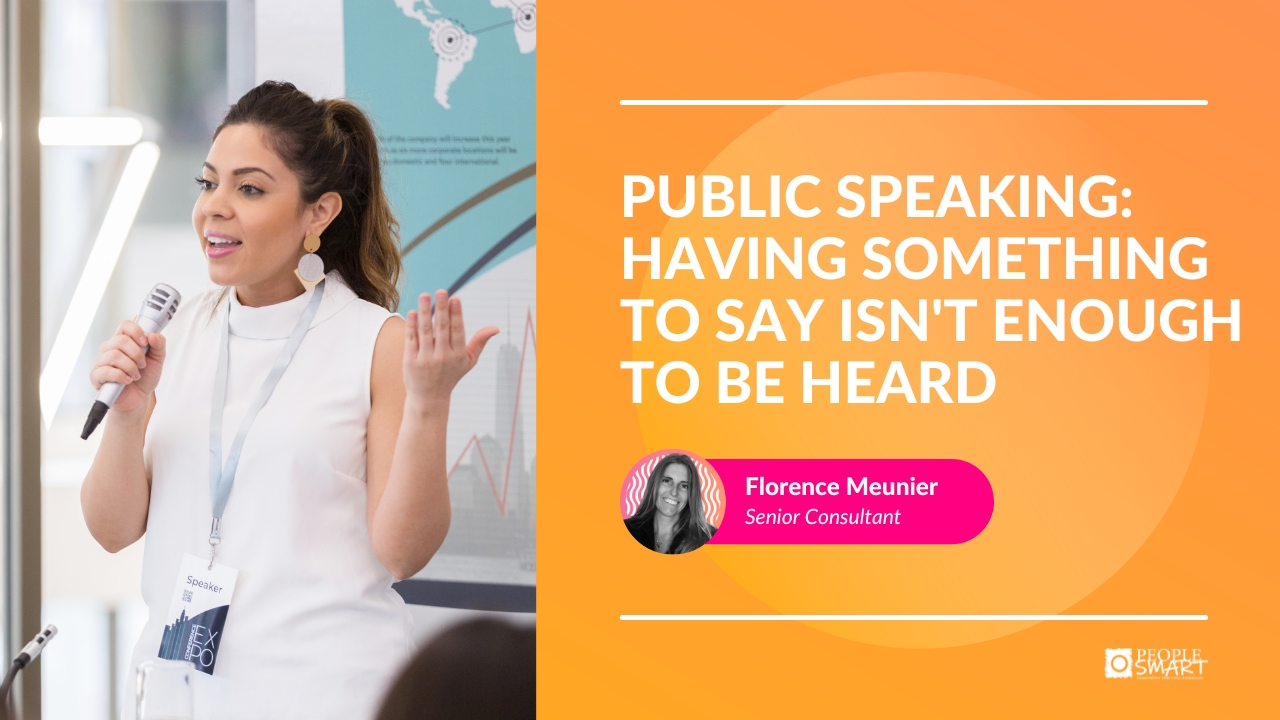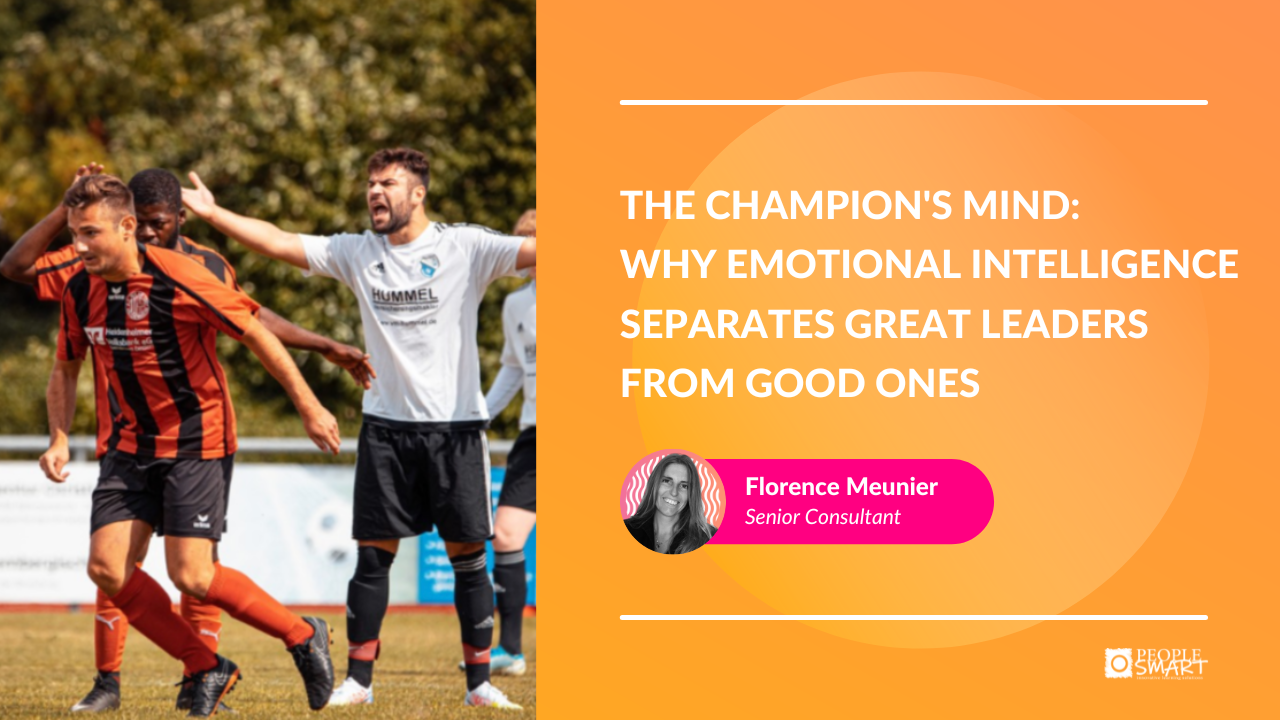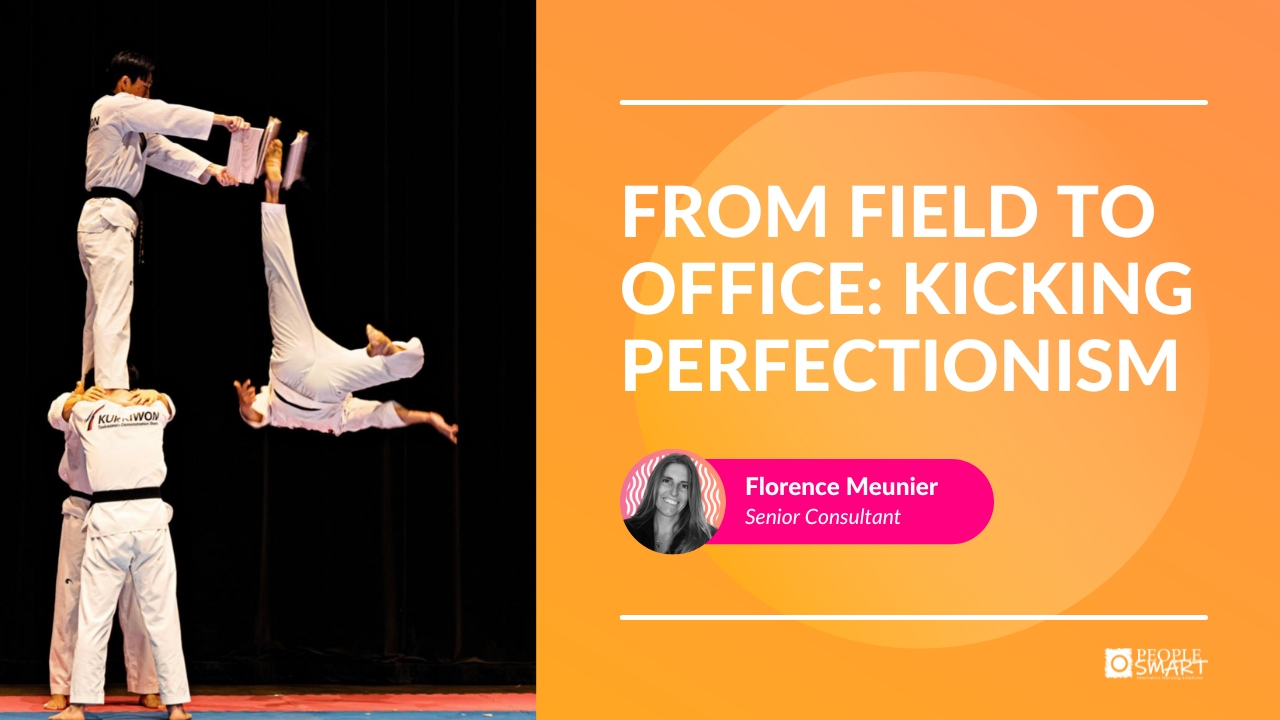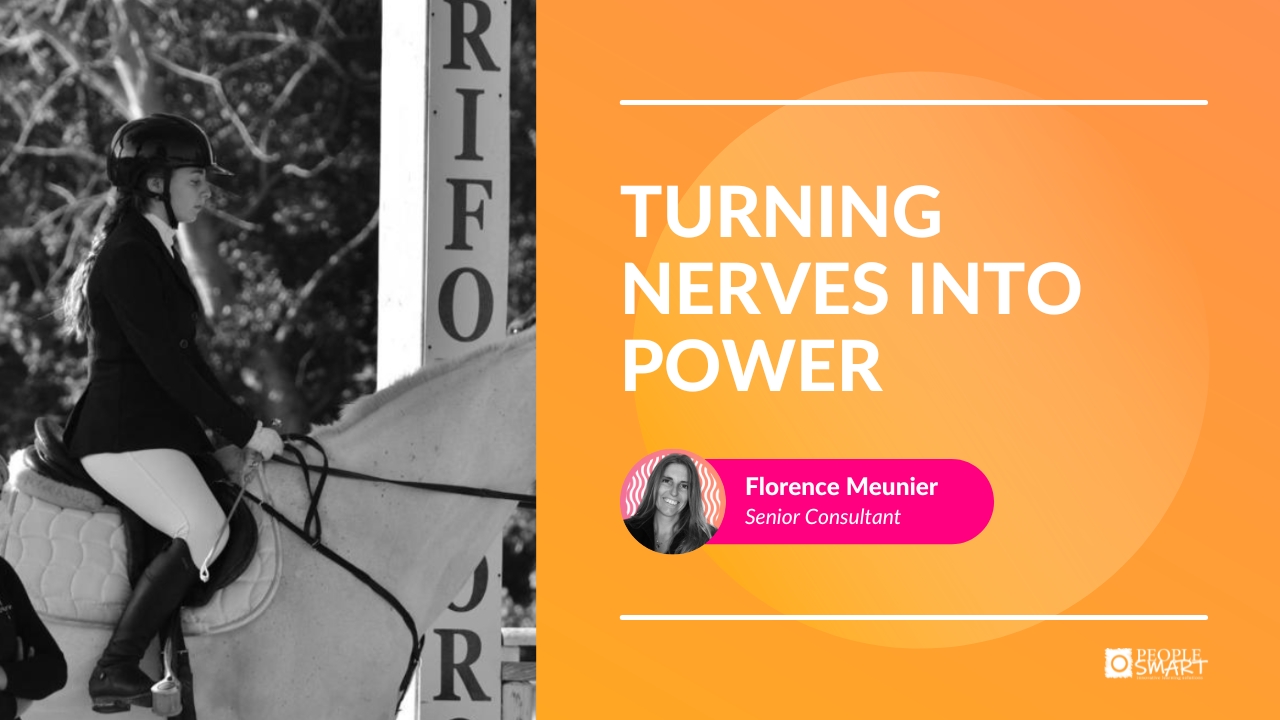How Emotional Intelligence & Diversity in Teams are related
by Maria Caterina Capurro
As Emotional Intelligence Practitioners or even if you are just starting learning EI, you may have started noticing the enormous impact EI behaviours have on organizations, performance, relationships, families, and overall wellbeing.
GENOS definition of EI clearly states:
“Emotional Intelligence (EI) or emotional quotient (EQ) is a set of skills that help us better perceive, understand and manage emotions in ourselves and in others.”
In other terms, it is a ‘brain power’ that helps us to regulate the incredible source of energy of our emotions and to connect with other people.
That is so crucial in all aspects of our life and in our workplace. By better understanding our colleagues, we create better teams, and better teams are more productive because everyone feels better. It is a virtuous circle.
To quote Daniel Goleman:
“If you see a star performing team, you’re seeing a very high group IQ. But what predicts the actual productivity or effectiveness of a team is not the potential—that is, the best talents of every person— it’s how people are valued on that team. It’s how people feel there’s harmony, that we get along, that we surface simmering issues, that we take time to celebrate, that we know each person’s strengths and that we step aside when it’s time for this person to come forward. In other words, we are a team that has a high emotional intelligence.”
That applies to both face-to-face teams and virtual team, as both are formed by people. Where there are people, there are emotions. And where there are emotions, we need to use our Emotional Intelligence.
In fact, Emotional Intelligence behaviours are the most powerful ones to support cooperation. A fundamental EI competency comes into play here: Being aware of others (re. GENOS Model of EI).
When we demonstrate it,
- We make others feel appreciated
- We adjust our style so that it fits well with others
- We notice when someone needs support and responds effectively
- We accurately view situations from the perspective of others
- We acknowledge the views and opinions of others
- We accurately anticipate responses or reactions from others
- We balance achieving results with others’ needs
Isn’t that the recipe for understanding diversity and creating an inclusive team?
In fact, it is as these behaviours create a climate in which people feel understood, feel at ease, feel valued, and feel safe. All conditions that are needed for a team to work together in an inclusive way. If you think about it, that cannot be achieved with procedures and rules. The only way to reach it is by using and demonstrating Emotional Intelligence.
In practical terms, “It is not about a team member working all night to meet a deadline, it is about saying thank you for doing so. It is not about in-depth discussion of ideas; it is about asking a quiet member for his/her thoughts. …It is about treating others with respect.” (Daniel Goleman)
Respect, the magic wand. But it needs to be an authentic respect, one that does not deny differences, instead one that acknowledges and appreciates diversity by celebrating uniqueness. We may have all heard the principle that ‘a team is more than the sum of its parts’. As I see it, that is the essence of diversity. Each ‘part’, that is to say each team member has their distinctiveness. Only the combination of each one’s uniqueness makes the team grow and learn.
Can you imagine if teams were constituted of identical people, with identical backgrounds, experience, and specialties? Supposedly they would all have the same team roles too. What results would they bring to the organization? What new ideas and solutions? Very limited, simply because they would see the world through the same glasses.
As leaders that understand and use Emotional Intelligence, it is therefore fundamental to understand team members’ strengths and leverage on them, encourage relatedness, and make sure everybody is heard.
As team members empathy is the key, and facing challenging diversity circumstances learning to ask themselves:
- What else could that behaviour mean?
- How might that person feel about that?
- How would I have behaved in that situation?
“… So, when it comes to diversity, you’re seeing people who have a range of backgrounds, of understandings and abilities. And the more diverse team is going to be the one with the largest array of talents, as so it will be the one with the potential best performance.” (Daniel Goleman)
To one condition, being open to people who are different from us.
Success Stories
Katarzyna Warchol, Training Manager at ‘The Westin Dragonara Resort’ in St. Julian’s, Malta, got her ‘Leading & Motivating with EI’ Certification in July 2019. With the support of the HR Manager, Michelle Seguna, she delivered the first session of this training in-house successfully last January.
This is her story:
 “The main focus of the training in our case was the link between Emotional Intelligence and Motivation / Engagement of associates. In order to reach the Training objectives, we explored the [GENOS] Model of Emotional Intelligence, 4P Model of Employee Engagement and further went into exploring SCARF model of Universal motivators & facilitating conversations around Individual Drivers of Motivation.
“The main focus of the training in our case was the link between Emotional Intelligence and Motivation / Engagement of associates. In order to reach the Training objectives, we explored the [GENOS] Model of Emotional Intelligence, 4P Model of Employee Engagement and further went into exploring SCARF model of Universal motivators & facilitating conversations around Individual Drivers of Motivation.
We found that explanation of Neuroscience of emotions coupled with a discussion on SCARF model was a very eye-opening experience to our managers who could clearly identify behaviours from their daily work lives which can cause a reward or threat state and respectively have influence on performance & actions of their teams. Following potential actions causing threat response, the solutions to how to minimize such response had been created and passed on to all participants in the form of a SCARF Model Guide.
I had been very lucky to have a co –facilitator, Michelle our HR Director who had been supporting the delivery based on the knowledge which she received by attending a shorter version of the training with you. Our intention was to continue with our sessions however due to the current situation, we had to move our plans in time.”
Well done Katarzyna!
Learning and Development
As a GENOS Official Partner, PeopleSmart will soon be launching the latest programme on Leading with Emotional Intelligence.

It is a virtual series of six 90-minute sessions based on Emotional Intelligence and Social Neuroscience to boost essential EI leadership skills for 2020 and beyond.
Each session covers a fundamental EI competency for leaders:
EI Model
Aware Leader
Authentic Leader
Expansive Leader
Resilient Leader
Empowering Leader
The programme begins with a GENOS Leadership 180° or 360° Assessment (additional individual debrief is optional) and ends with a final GENOS Assessment (optional).
Please, contact us for further information: contact@peoplesmart.fr
